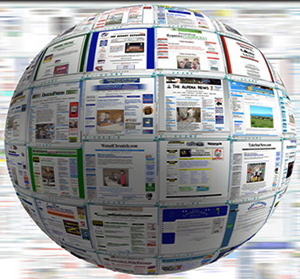Senior MP: OPEC Presidency Displays Inefficiency of Sanctions against Iran

FNA- A senior Iranian legislator reiterated on Wednesday that Iran’s presidency over the Organization of the Petroleum Exporting Countries (OPEC) shows that the unilateral and international sanctions imposed against the country by certain western powers have been futile and meaningless.
"Iran’s presidency over OPEC makes the western countries’ recent sanctions against Iran meaningless," member of the parliament’s Article 90 Commission Gholamreza Asadollahi told FNA.
He downplayed efficiency of the attempts made by the West to pressure Iran through illogical sanctions to bring the country to its knees, and stressed, "Iran as the second world oil producer and exporter plays an important role in changing global equations."
Asadollahi also described Iran’s rotating presidency over OPEC after nearly 3 decades as a milestone in the country’s economic progress.
Iran is under four rounds of UN Security Council sanctions for turning down West’s calls to give up its right of uranium enrichment, saying the demand is politically tainted and illogical.
Iran has so far ruled out halting or limiting its nuclear work in exchange for trade and other incentives, saying that renouncing its rights under the NPT would encourage world powers to put further pressure on the country and would not lead to a change in the West’s hardline stance on Tehran.
Iran has also insisted that it would continue enriching uranium because it needs to provide fuel to a 300-megawatt light-water reactor it is building in the southwestern town of Darkhoveyn as well as its first nuclear power plant in the southern port city of Bushehr.
Tehran has repeatedly said that it considers its nuclear case closed as it has come clean of IAEA’s questions and suspicions about its past nuclear activities.
Following a series of tough sanctions on Iran which actually dissuaded and eventually banned western firms from trade and investment in Iran, an increasing number of Asian, specially Chinese and Indian, companies have been showing enthusiasm for making large investments in Iran’s different economic sectors.
Iranian officials, for their part, dismissed the western sanctions as inefficient, saying that they are finding Asian partners instead. Continued…
Iranian import curb will not hurt bilateral trade
The Economic Times--The Asian Clearing Union (ACU) mechanism provides for member countries - India, Iran, Nepal, Pakistan, Sri Lanka, Bangladesh and Myanmar - to make multilateral payments arrangement that periodically offsets the debits and credits accumulated by each member against the other members in the process of trade and other transactions.
Multilateral clearing or payment arrangements facilitate the use of national currencies, and thus serve to relax the foreign exchange constraints of the members. The member countries could pool their dollar/ euro payments against each other in the clearing house and net payments effected in their local currencies.
With the current level of foreign exchange reserves and India’s willingness to open the capital account convertibility also in full in future, it is but natural that all mechanisms that control free flow of foreign currency into/out of India need to be dispensed with.
The current view of the RBI is to move away from the ACU and ask importers and exporters to Iran to settle their payments through the normal purchase of foreign currency; either dollar or euro is in right perspective. Iran has already started trading in oil in euro, thus avoiding the dollar trade. Central banks of both Iran and India have already started a dialogue on the mode of settlement other than the ACU.
The new arrangement should in no way affect the current import/export of both the countries which are governed by the Exim policies.
As a good international citizen, India has a long record of faithfully implementing sanctions imposed by the Security Council . The issue at hand is not about imports of oil from Iran, which are not prohibited by the current UN sanctions.
But the range of measures adopted by the international community against the banking and finance sectors of Iran has complicated the system of payment. It is unfair to construe that the action of RBI is under any pressure from the US, though the action may be due to the fresh mandate of the sanction on Iran by the US/UN.
Iran’s foreign minister in Iraq to cement ties
AP— Iran’s new foreign minister is in Baghad in an attempt to cement ties with the new Iraqi government.
The visit Wednesday is the first by Ali Akbar Salehi or any Iranian official since Iraq’s new government was sworn in after about nine months of political wrangling following March elections.
The two Shiite-dominated countries fought a brutal eight-year war in the 1980s that left hundreds of thousands of people dead on both sides.
Ties were troubled before the 2003 U.S.-led invasion toppled Saddam Hussein’s Sunni minority-led government. But with the rise of Iraq’s Shiites after the invasion, Iran has gained much influence in Iraq.

